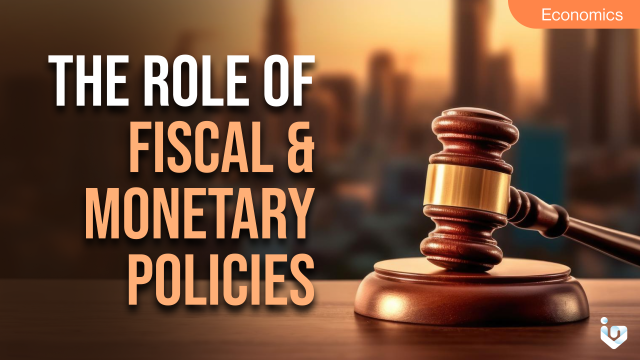In the intricate world of economics, fiscal and monetary policies stand as crucial tools for shaping a country’s economic direction. Fiscal policy, primarily managed by the government, involves adjustments in government spending and tax rates to influence the economy. On the other hand, monetary policy, overseen by the central bank, entails managing the money supply and interest rates to control inflation and stabilize the currency.
Fiscal Policy: Government Spending and Taxation
Fiscal policy can stimulate economic growth during a recession by increasing government spending, which, in turn, injects more money into the economy. Conversely, to cool down an overheated economy, the government can decrease spending or increase taxes, leading to a reduction in consumer spending, which helps control inflation.
Monetary Policy: Money Supply and Interest Rates
Monetary policy works through the central bank’s control over the money supply and interest rates. Lowering interest rates can encourage borrowing and investing, thus stimulating economic activity. Conversely, raising interest rates can help curb inflation by making borrowing more expensive, which slows down economic growth.
Interplay Between Fiscal and Monetary Policies
The interplay between fiscal and monetary policies is vital for economic stability. When these policies are harmoniously aligned, they can effectively manage economic fluctuations. However, if they are at odds, they can lead to policy conflicts and undermine economic performance.
Challenges in Policy Implementation
Implementing these policies comes with its challenges. Timing is crucial; a delay in the implementation of fiscal policy can worsen economic downturns. Similarly, an untimely adjustment in monetary policy can lead to unintended consequences like asset bubbles or excessive inflation.
Global Perspective on Fiscal and Monetary Policies
In a globalized economy, the impact of fiscal and monetary policies extends beyond borders. Policy decisions in one country can have ripple effects internationally, influencing exchange rates, trade balances, and foreign investment flows.
The Balancing Act
The role of fiscal and monetary policies is akin to a balancing act, requiring careful calibration to navigate the economic landscape. Policymakers must consider a multitude of factors to ensure that these tools are used effectively to promote sustainable economic growth and stability.

